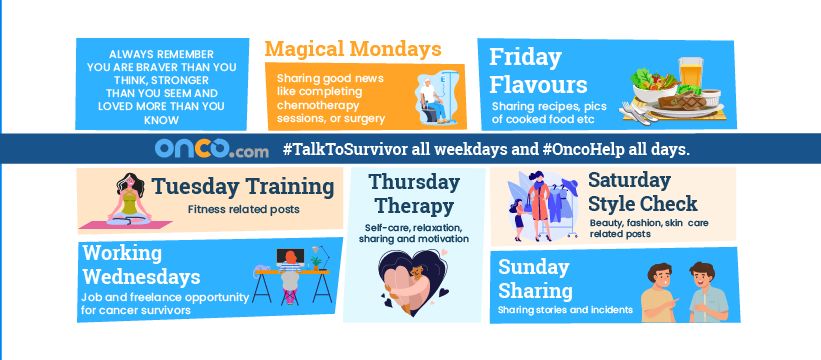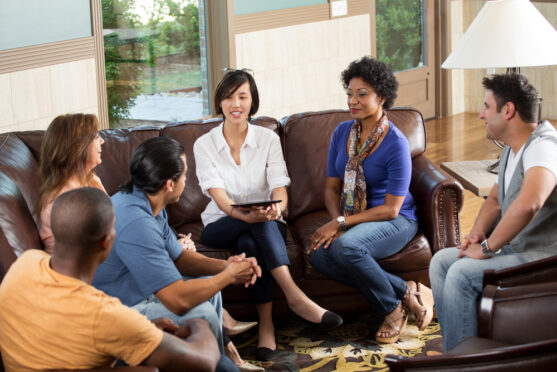One of the less talked about side effects of cancer is isolation. Cancer patients, and even their caregivers become isolated from their own families, friends and social circles.
One possible reason for this is that cancer and its treatment can be overwhelming. It can take up all your energy, time and finances, draining you of any motivation to meet people.
However, staying connected with others who can understand, at least to some extent, what you are going through, can help you in many ways.
Leukemia survivor Amit Dubey shares his thoughts on why we need a cancer community:
Onco.com offers a cancer community that is open to anyone whose life has been affected by cancer. Through Facebook, Instagram, Whatsapp and through live events, this community helps you meet and interact with other cancer patients, caregivers and survivors.
The biggest advantage of Onco’s communities is that once you are a member, you automatically have access to free opinions from medical experts in the field of oncology. They will be able to answer your queries, interpret your reports and help you find the right resources.
Onco’s communities are run by cancer survivors themselves, who use Onco’s resources to help the cancer community at large.
Onco Warriors on Facebook
The Onco Warriors group on Facebook can be your choice of community if you are looking for positivity and encouragement. Patients and survivors from all over the world share their cancer journeys on this page.
There are fun events for group members and every day of the week is dedicated to sharing tips around one specific aspect of cancer care.

It’s not only fun and games though, you can also get free medical advice from Onco’s team of qualified experts. Many patients and caregivers post their queries on treatments, scans and tests reports and nutrition, to get quick and accurate answers from oncologists and nutritionists.
Click here to join the Onco Warriors group.
Breast Cancer Talk on Facebook
This Facebook group is exclusively for patients, caregivers and survivors of breast cancer. Breast cancer is one of the most common types of cancer among women, not just in India, but in the world as well.
The users of this group can post queries related to breast cancer and receive suggestions and advice from other users as well as from medical experts.
From side-effects, to fitness and everything in between, this group can become a source of comfort for those who are looking for tips from others who have been on a similar treatment path.
There are also live sessions conducted within the group with oncologists, counsellors, nutritionists, breast cancer survivors etc offering their expertise to the group.
Click here to join the Breast Cancer Talk group.
Talk Your Heart Out
If you prefer a more private space where you can share your thoughts confidentially, then Onco’s listening circle ‘Talk Your Heart Out’ may be your choice.
This listening circle invites cancer patients, caregivers and survivors to share their thoughts and doubts within a closed group, either virtually or at in-person events.

These circles are usually conducted once a month, at different locations. To find out about how you can be a part of the next listening circle, email community@onco.com.
Talk to a Cancer Survivor
If you prefer to connect one-on-one with a cancer survivor, then this is your best choice. Onco’s ‘Talk to a Cancer Survivor’ programme connects you with a cancer survivor who will be your mentor and buddy.
The role of the survivor is to provide you with a listening ear, plenty of empathy and also the occasional straight talk when required. They will use their own experience with surviving cancer to provide inputs on staying mentally and emotionally strong during your treatment.
If you would like to use this free service from Onco.com, email community@onco.com with your name, contact number and your cancer type.
No matter what your preference, a cancer community can aid in your recovery process by keeping you motivated and connected. Make sure you pick a community that empowers you, and does not add to your anxieties through unmoderated discussions and medically inaccurate information.
To read more about why you should join a cancer support group, click here.
